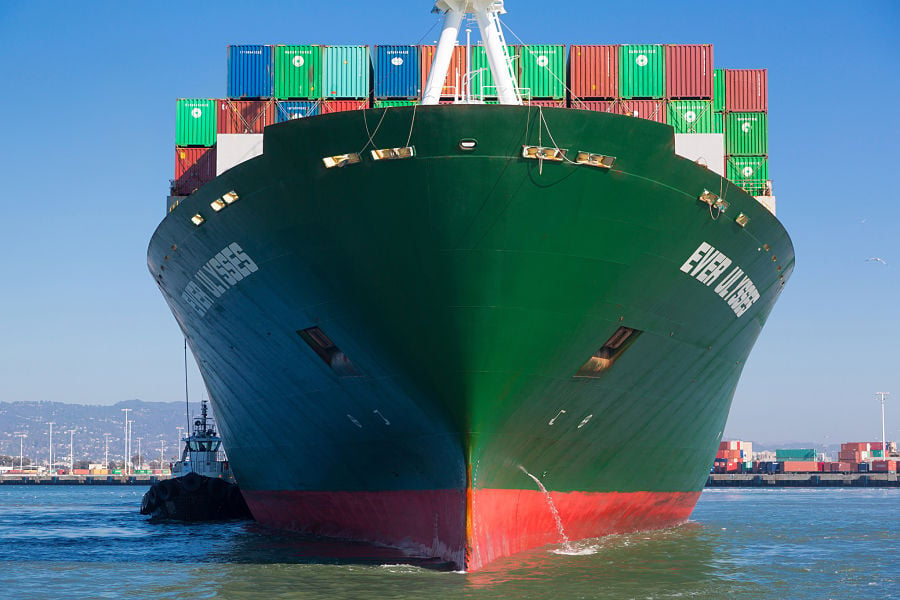Heading into a week that includes the July Fourth celebration, it would be easy to overlook or ignore the impact of a
potential trade war between the United States and several global trading partners.
But savvy financial advisers are paying attention.
"We've done a lot of research on the status of trade negotiations, and our clients are concerned about it because it has already had an impact on market volatility," said John DeSimone, chief financial officer at Dakota Wealth Management.
While Mr. DeSimone is careful not to describe the situation as an official trade war just yet, he is communicating to clients that the advisory firm is prepared to move client portfolios into
more defensive positions if things escalate.
The potential for a global trade war, which would see nations and regions of the world introduce taxes on imports in retaliation for tariffs being threatened by the Trump administration, was the main topic of a raft of midyear
economic outlooks from financial services firms over the past week.
Douglas Cote, chief market strategist at Voya Investment Management, said the "direct effects of a trade war" are placing a drag on an otherwise solid economy.
"Rumors of trade wars are always problematic since they slow growth and capital flows and exacerbate problems," Mr. Cote said. "So, it's important to see how the world economy is faring as the situation develops."
Barring fresh negotiations between the United States and China, a trade war could kick off as early as July 6, when the U.S. is scheduled to introduce a 25% tariff on $34 billion worth of goods imported from China.
To put that into perspective, the U.S. imported about $500 billion worth of goods from China last year. But the initial round of tariffs on China is just the first one on the Trump administration's agenda.
The U.S. exported $130 billion worth of goods to China last year.
"We have to look at each negotiation separately," Mr. DeSimone said. "I'm not too concerned about a trade war with the European Union. The situation with Mexico and Canada is a bit more complex."
Matt Forester, chief investment officer at BNY Mellon's Lockwood Advisors, said it will be up to investors and the markets to distinguish between "political rhetoric and serious trade policy."
While both consumer and business sentiment levels are currently hovering at record highs, Mr. Forester said the slight pullback in consumer sentiment this week reflects concerns over a potential trade war.
"The size of the impact now is somewhat limited, but it could be extremely damaging," he added. "The risks of a trade war are higher prices and lower output, neither of which is good."
Kashif Ahmed, president of American Private Wealth, said he is more concerned about short-term market gyrations than he is about the long-term impact of the international trading negotiations.
"These skirmishes, while they heighten volatility in the short term, are unlikely to develop into full-fledged trade wars," he said. "Despite the rhetoric from individual leaders, governments are more than one person, with varying levels of checks and balances."
Mr. Ahmed is confident that "plenty of cooler heads will work behind the scenes to prevent this, because no one will be left unscathed on the other end."
John Lynch, chief investment strategist at LPL Financial, said in the case of China, the U.S. has the advantage.
"With far fewer goods exported to China than imported from China, the U.S. retains a structural advantage in a trade dispute," he said. "Consequently, China is going to run out of direct reprisals quickly should it try to match U.S. tariffs."
But as most market watchers and analysts have argued, there are no real winners in a trade war.
"China loses more than the U.S., but the U.S. also loses," said Paul Schatz, president of Heritage Capital.
Asked how worried he is about a possible trade war, Mr. Schatz said his concern is high but not yet keeping him up at night.
"If it was anybody other than President Trump, I'd say the tariffs are coming to fruition, but given his pattern of unusual behavior, I'm counting on them not coming to fruition," Mr. Schatz added. "I'm hopeful for a compromise."







